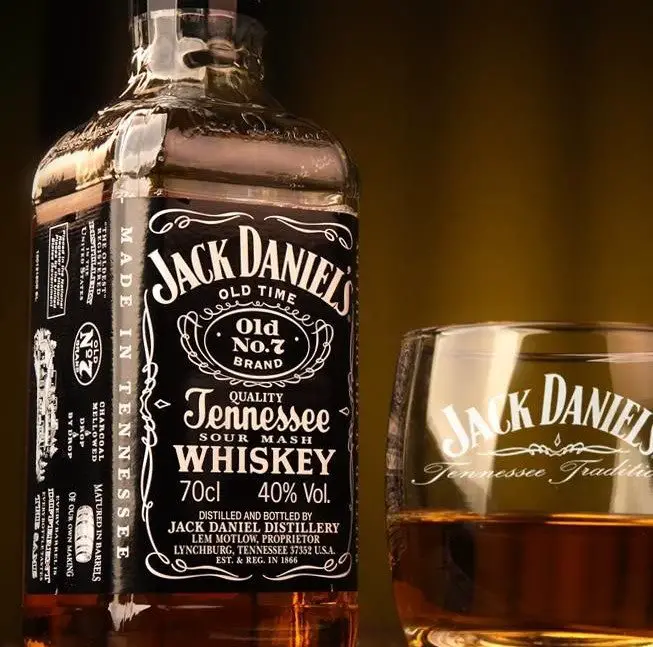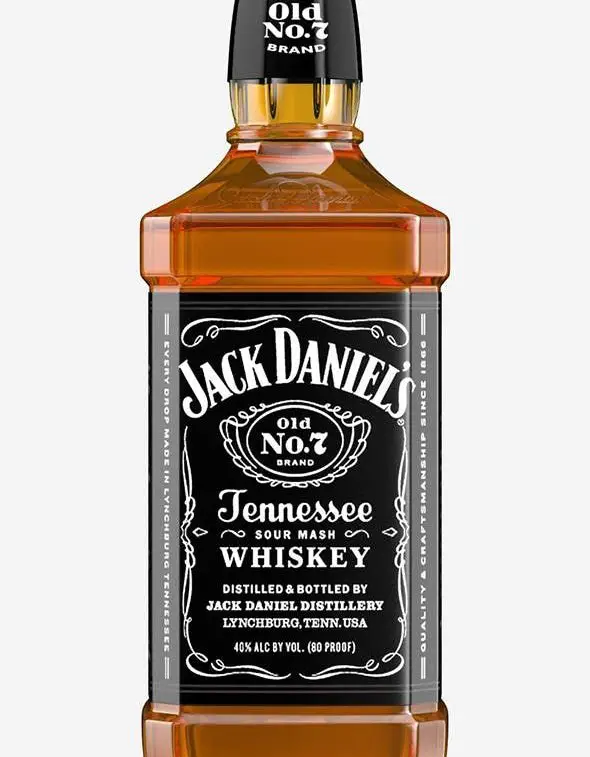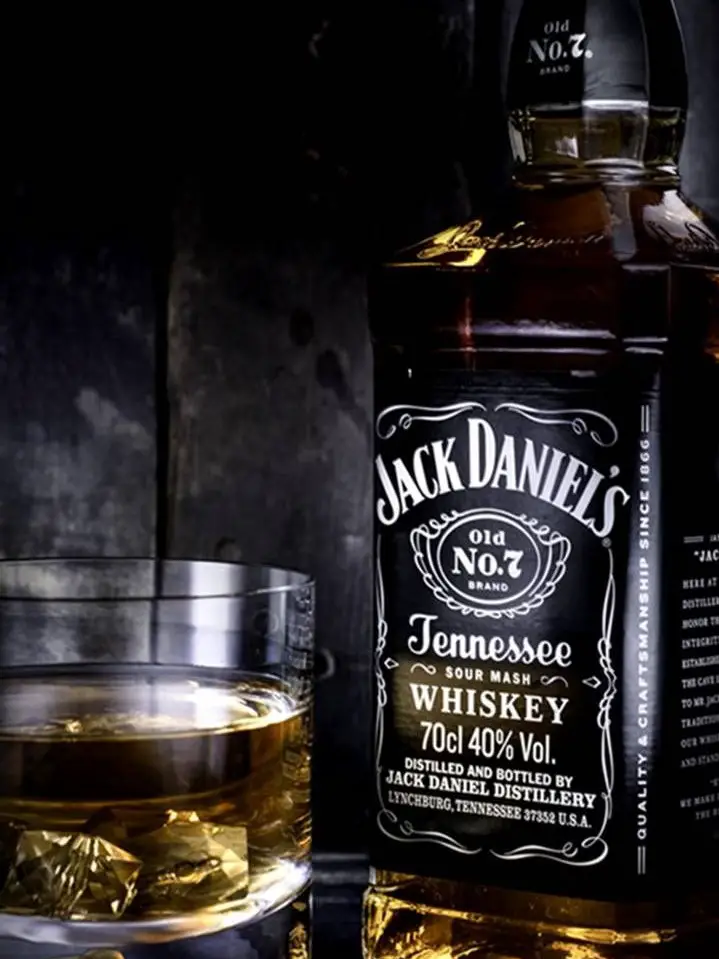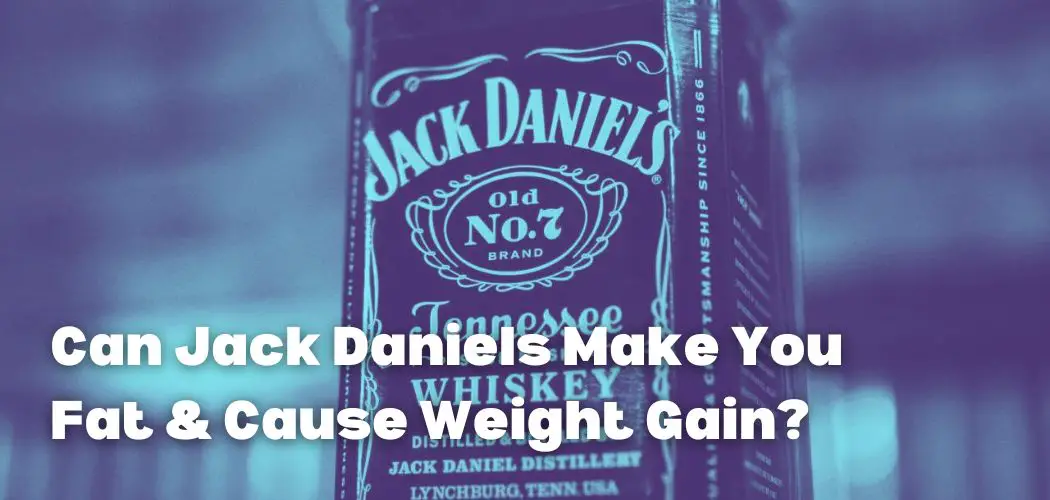The Jack Daniel Distillery was the first registered distillery in the United States, having been founded in 1866.
Jack Daniel’s whiskey, a popular beverage, and component in barbecue sauce contain relatively few calories per ounce.
To reduce calories, consume Jack Daniel’s in moderation and avoid high-calorie cocktail mixers.
Contents
Nutritional Information
As one of the oldest and most well-known whiskies made in the United States, Jack (like other brown liquors such as bourbon, rye, and Scotch) contains none of the vitamins and minerals necessary for good health.
According to Jack Daniel’s website, 1 ounce of Jack Daniel’s Old No.7 contains around 65 calories. These calories are entirely derived from ethyl alcohol and contain no carbohydrates, fat, protein, or dietary fiber.

As a result of the distillation process, Jack Daniel’s Black Label Tennessee Whiskey contains no carbs (sugar or starch), gluten, lipids, or cholesterol, according to the manufacturer. Additionally, it does not contain sodium.
Based on a 2,000-calorie diet, a 1-ounce serving of Jack Daniel’s delivers around 3 percent of the average adult’s daily caloric intake. This serving contains approximately 9 grams of alcohol, according to the information provided. The remainder is water.
Ingredients
The traditional black-labeled product, Jack Daniel’s Old No. 7 Tennessee Whiskey, is an alcoholic beverage primarily crafted from corn and other grains that are mashed, fermented, and distilled.
The alcohol content of Jack Daniel’s Whiskey is 40%. According to the Code of Regulations published by the National Archives, Jack Daniel’s is categorized as “straight corn whisky.”
According to these standards, maize whiskey produced in the United States must be distilled from a fermented mash containing at least 80 percent corn.
Straight corn whiskey must be aged in charred oak barrels for at least two years at no more than 160 proof by volume, and can only be marketed at 80 proof.
Possible Dangers
The following health risks may arise due to the consumption of jack daniels.
Cognitive and Mental Health
While moderate alcohol consumption may be beneficial to brain health, excessive alcohol consumption has been shown to interfere with memory formation. This can result in cognitive impairment over time.
Heavy alcohol use is also associated with sadness, anxiety, and alcoholism.
Pregnancy Worries
According to research, drinking any amount of alcohol during pregnancy can impair fetal growth. Additionally, it raises the likelihood of miscarriage, preterm birth, and fetal alcohol syndrome.
Liver Damage
Because the liver breaks down alcohol in the body, excessive alcohol consumption can result in liver damage. High alcohol consumption causes fatty liver deposits and scarring, which can eventually lead to liver failure.
Heart Disorders
Whiskey’s cardiac benefits are derived from tiny amounts. Heavy alcohol use can cause hypertension, high cholesterol, and heart disease.
Immune System Function
Consuming excessive alcohol can damage the immune system, diminishing the body’s ability to fight infection and increasing the chance of developing chronic diseases.
Risk Of Cancer
According to studies, alcohol can raise the risk of cancer, particularly of the mouth, throat, esophagus, liver, colon, pancreas, and breast.
Is It Fattening?
Although this may appear to be a yes-or-no question, it is not. Jack Daniel’s whiskey can cause weight gain if other factors make you susceptible to gaining weight. If you make other healthy decisions, it will not cause you to gain weight.

Several variables contribute to the weight gain associated with whisky use. Consequently, the answer to the question depends on:
- The amount of whisky you consume.
- The frequency of such consumption.
- Your health overall.
- Your lifestyle and diet.
- The prevalence of obesity in your family tree.
Any calorie-dense food or beverage can lead to weight gain. This is why people must limit their consumption of high-calorie foods and beverages.
Even foods without a high caloric content might lead to weight gain. Vegetables and fruits, for example, are low in calories yet can lead to weight gain if ingested improperly.
Potential Health Benefits
Whiskey has fewer calories than other alcoholic beverages and no carbs or sugar. Its ellagic acid concentration may also reduce inflammation in the body and lessen the incidence of obesity.
Research reveals that drinking whiskey has additional health benefits. All of these benefits, however, are contingent on moderate intake; excessive drinking can result in major health problems.
A daily glass of whiskey may provide health benefits such as:
Mental Health
The antioxidants derived from plants in whiskey may aid in maintaining a healthy chemical balance in the brain. Small doses of whiskey, especially aged types, increase the activity of the GABA neurotransmitter, which is crucial for memory and nervous system function.

One study indicated that those who consumed one to six alcoholic beverages per week had a decreased incidence of dementia than those who did not drink.
Another study demonstrated that moderate alcohol consumption may decrease cognitive deterioration in Alzheimer’s disease patients.
Elimination of Cold Symptoms
Whiskey can temporarily dilate the arteries. This can help relieve mucus congestion in your sinuses and chest, allowing your body to better fight against illness and infection. This impact may help alleviate other cold or flu symptoms, such as coughing or wheezing.
Immune System Support
Scientists are uncertain as to why moderate alcohol use improves immunity to disease and vaccination response, although a number of studies make the connection.
People who use alcohol on a daily basis had a reduced incidence of the common cold, faster clearance of microorganisms, and superior antibody response, according to studies. Nevertheless, much more research is required to comprehend this effect.
Healthy Heart
High quantities of polyphenols, plant-based antioxidants associated with a reduced risk of heart disease, are found in whiskey. The polyphenols in whiskey have been proven to reduce “bad” cholesterol (LDL), increase “good” cholesterol (HDL), and lower triglyceride levels, or blood fat.
Triglycerides and bad cholesterol can clog arteries, while good cholesterol helps to keep them free. Maintaining healthy levels can aid in the prevention of cardiovascular disease and stroke.
Conclusion
In the end, it is indisputable that excessive whiskey use will result in some type of weight gain, despite the fact that little, flavorful amounts of whiskey cannot make you fat.
If you want to reduce your alcohol intake, you may need to learn how to truly appreciate your drink.
While gulping down pints at the pub may be more your style, making it more difficult to change the way you enjoy alcohol, you may learn to appreciate patient, appreciative sipping if you strive.

